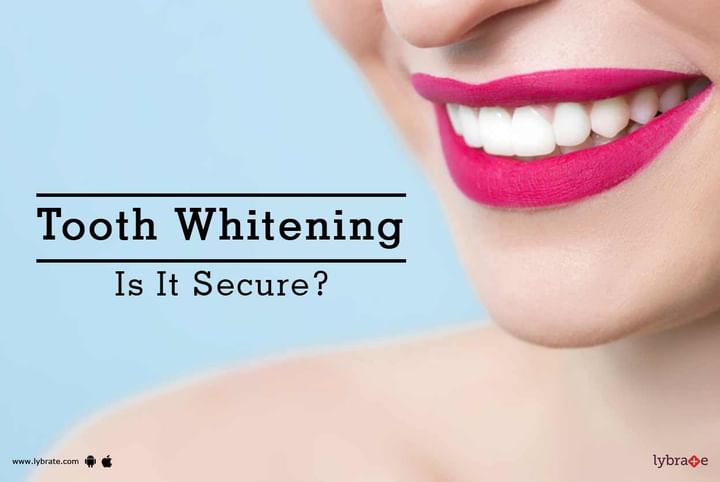Tooth Whitening - Is It Secure?
Nobody is happy with their teeth and everybody wants whiter, brighter teeth. In the last few decades, tooth whitening is one of the most commonly done cosmetic dental procedures. Majority of these people are in the age of 10 to 25, who are very conscious about their looks.
What needs to be understood is that dental whitening is permissible to a certain extent. Not many people realize this and continue to use the tooth whiteners even after the desired result is achieved in an effort to get it a couple of more shades lighter. This is something that needs to be watched for.
Safety of tooth whitening: Talking about the safety of tooth whitening, some of the supposedly unsafe aspects are listed below.
Most products used currently are tested both on patients and in the laboratory and are proven to be completely safe. However, overuse or misuse of these products can lead to issues. The active chemical ingredient in most of these products is hydrogen peroxide - most contain about 10% carbamide peroxide which breaks into hydrogen peroxide and urea. There are claims that this is carcinogenic. However, this is not the case and there is no strong correlation. Also, if the application is done correctly, there is very minimal exposure to hydrogen peroxide directly.
The second issue that most people associate tooth whitening is with tooth sensitivity and gum irritation. Both these symptoms are directly related to the percentage of carbamide peroxide. It is shown that products with more than 10% produce more teeth sensitivity and gum irritation than those that contain less than 10%. Improper tray selection can lead to gum irritation. Also, patients who are overzealous and go about whitening their teeth further can end up with severe sensitivity. The explanation in these cases is the enamel is worn off by the chemical leading to exposed dentinal tubules which, even when exposed due to caries, can cause sensitivity.
Listed below are some ways to avoid or reduce sensitivity-
1. When using the bleaching tray applicator, use it only for the recommended period of time. Do not keep it longer to make the teeth whiter.
2. Use a paste that is meant for sensitive teeth. The potassium nitrate in these will help relieve sensitivity.
3. Use a product with fluoride so that the teeth can remineralize. This can be used before and after tooth whitening for up to 4 minutes.
It is advisable to avoid tooth whitening in some cases like the following-
1. Pregnancy
2. Breastfeeding
3. Ceramic crowns or bridges in the front teeth - these cannot be bleached
4. Gingival disease with gum recession and exposed root - the sensitivity is sure to quite high
To avail the best results, always use clinically proven products under the supervision of a dentist.



+1.svg)
